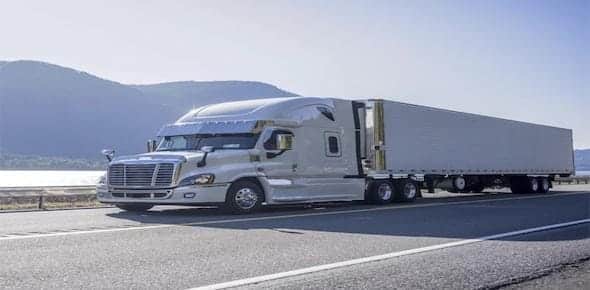You never expect to be involved in an automobile accident, but we know accidents involving semi-trucks can be disastrous and life-altering. Aside from the sheer size difference between a large truck and a passenger car, some additional factors can come into play. These factors can make the legal process much more difficult in all respects after a truck accident, including making insurance pay and finding liability.
The following are some key differences in which a car accident is significantly different than an accident with a semi-truck.
Weight and Size Difference
If you have driven past a semi-truck crash, you probably noticed the damage from a semi-truck accident is much worse than an accident involving two smaller cars. When a semi-truck is involved in a wreck, you are more likely to have victims with serious traumatic injury or even death. In addition, there is also often major property damage. A passenger vehicle is smaller and weighs much less than a big rig and this factor alone creates a more dangerous situation for the car operator.
Insurance Difference
Another difference is how insurance laws apply to a semi-truck accident. A truck driver and trucking company is required to have special insurance MCS 90 with higher insurance coverage limits that other driver are typically not required to have on the roadway. The semi-truck insurance coverage must exist to protect the public for many possible outcomes. Factors that come into play with long haul trucker’s insurance include the age of the driver, the type of cargo in the truck, the miles driven, and the driver’s history.
Semi-truck accidents tend to cause more severe injuries than injuries caused by typical car accidents. As a result, victims of truck accidents usually have a longer and more difficult recovery process. Additionally, the severity of these injuries makes receiving fair compensation more difficult since there may not be enough coverage.
Because trucking insurance policies are worth potentially millions of dollars in damages, you may experience a legal fight with the insurer to obtain compensation for your damages to keep their payout low.
Liability Difference
The process to determine liability is also different from a regular auto accident. Finding the evidence is important for any number of factors that come into play when an accident with a semi-truck happens. You quick actions to hire an experienced truck accident attorney is very important because while you may think the truck driver was negligent, this may not be the only liable party, and documenting the evidence before its destroyed or lost is very important.
If another vehicle swerved quickly in front of a semi-truck and the driver could not stop quickly, the driver may not be found liable. At that point, you then have to pursue damages from the party that swerved.
Truck drivers are held to special standards of care because they are trained professional truck drivers. They have specialized education and training, so they are taught how to avoid negligence. However, if a driver is intoxicated, drives more hours per day than allowed, or speeding, for instance, they can be at least partially liable.
Evidence Gathering Difference
In a typical car accident, the evidence collection process is generally straight forward in almost all instances. You may take photos of the damage, get the police reports, witness statements, video footage, and so on. However, insurance companies often require victims of semi-truck accidents to provide even more evidence before thinking about paying for your damages.
Your heavy truck lawyer needs to work on gathering three major categories of evidence after an accident with a semi-truck. The first is truck driver’s employment file and logbook evidence. This evidence will include the driver’s qualification and training files, hours of service records, inspection files, work experience, and all drug and alcohol tests completed after the accident.
Second type of evidence pertains to the commercial vehicle. This includes information from all onboard computer systems (Electronic Data Recorder), the maintenance records for the truck, GPS data, and the inspection history of the truck.
Thirdly, you will also need to collect evidence about the cargo. Cargo evidence includes trip sheet, bills of lading, weight tickets, securement devices used, and instructions for dispatch.
Timing Difference
After being in an accident with a semi-truck, you need to take action immediately to preserve the evidence in a timely manner. This is due to the fact that evidence can be lost, destroyed, or altered. According to the Federal Motor Carrier Safety Regulations, some documents are only need to be maintained for a specific period of time and permissible as evidence during a specific timeframe. If you do not speak with your truck accident attorney soon, you could lose vital evidence necessary to help win your case.
Looking For Big Truck Accident Lawyers?
If you have any personal injury questions about your truck accident, please contact us at 1-866-HIRE-JOE to speak to the Joseph Dedvukaj Firm attorneys with over 27 years of successful truck accident experience. We are experienced in personal injury cases involving semi-truck accidents that require a truck accident lawyer skilled and knowledgeable in handling these serious accident cases.


